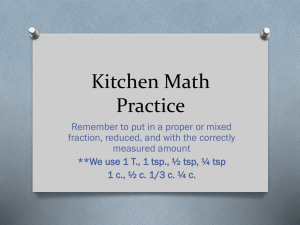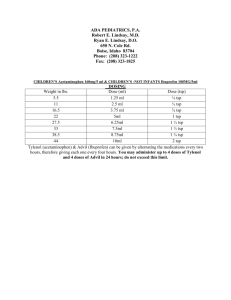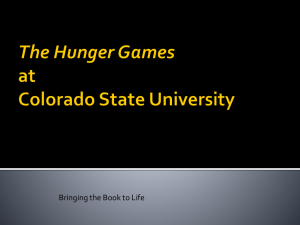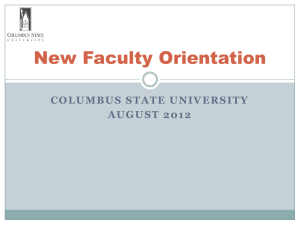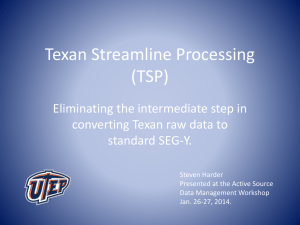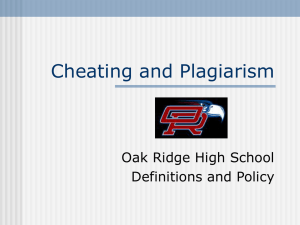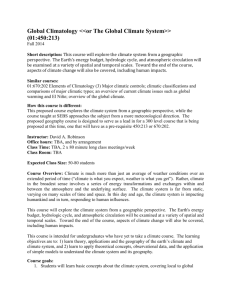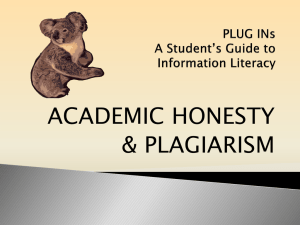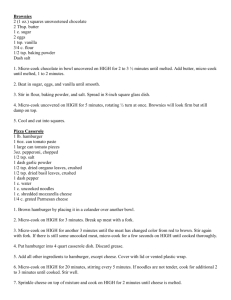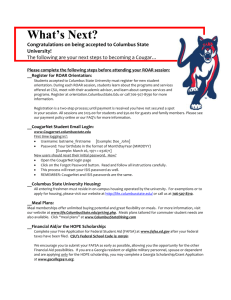CPSC 4505- Khan - TSYS School of Computer Science
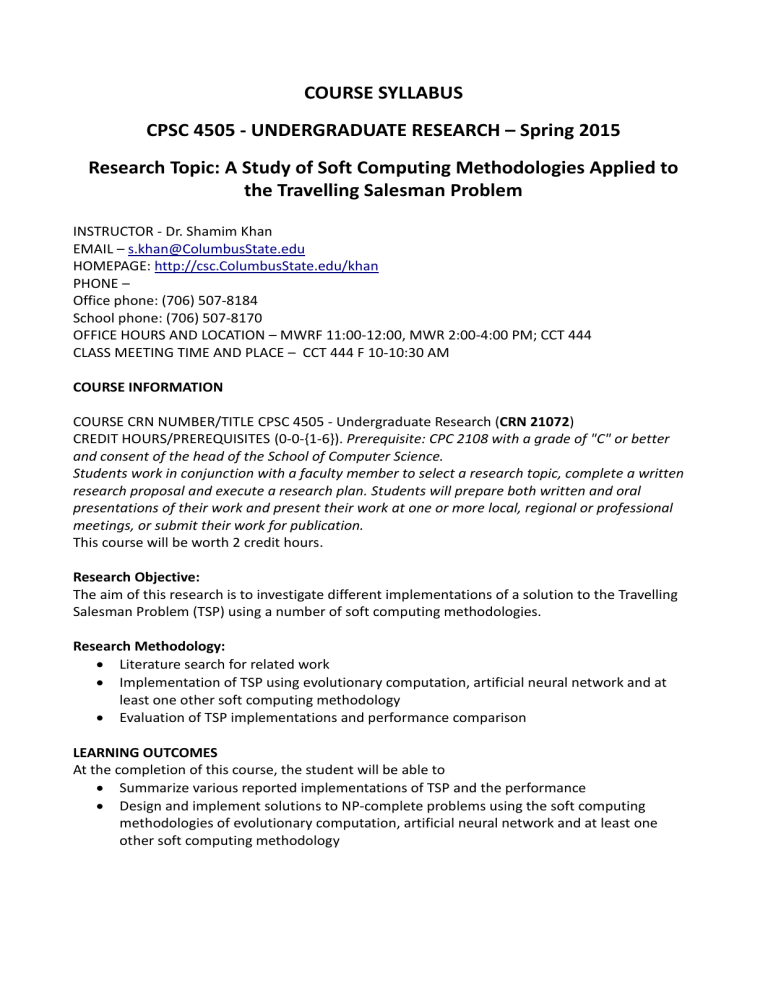
COURSE SYLLABUS
CPSC 4505 - UNDERGRADUATE RESEARCH – Spring 2015
Research Topic: A Study of Soft Computing Methodologies Applied to the Travelling Salesman Problem
INSTRUCTOR - Dr. Shamim Khan
EMAIL – s.khan@ColumbusState.edu
HOMEPAGE: http://csc.ColumbusState.edu/khan
PHONE –
Office phone: (706) 507-8184
School phone: (706) 507-8170
OFFICE HOURS AND LOCATION – MWRF 11:00-12:00, MWR 2:00-4:00 PM; CCT 444
CLASS MEETING TIME AND PLACE – CCT 444 F 10-10:30 AM
COURSE INFORMATION
COURSE CRN NUMBER/TITLE CPSC 4505 - Undergraduate Research (CRN 21072)
CREDIT HOURS/PREREQUISITES (0-0-{1-6}). Prerequisite: CPC 2108 with a grade of "C" or better and consent of the head of the School of Computer Science.
Students work in conjunction with a faculty member to select a research topic, complete a written research proposal and execute a research plan. Students will prepare both written and oral presentations of their work and present their work at one or more local, regional or professional meetings, or submit their work for publication.
This course will be worth 2 credit hours.
Research Objective:
The aim of this research is to investigate different implementations of a solution to the Travelling
Salesman Problem (TSP) using a number of soft computing methodologies.
Research Methodology:
Literature search for related work
Implementation of TSP using evolutionary computation, artificial neural network and at least one other soft computing methodology
Evaluation of TSP implementations and performance comparison
LEARNING OUTCOMES
At the completion of this course, the student will be able to
Summarize various reported implementations of TSP and the performance
Design and implement solutions to NP-complete problems using the soft computing methodologies of evolutionary computation, artificial neural network and at least one other soft computing methodology
STUDY PLAN AND ASSESSMENT SCHEDULE
Weeks 1-3:
Literature search on current implementations of the TSP problem
Assessment:
An annotated bibliography (min. 500 words)
Date due: Sunday, 1 February
(20% of grade)
Weeks 4-14:
Design and implementation of solutions to the TSP problem using evolutionary computation, artificial neural network and at least one other soft computing methodology
Assessment:
A project report (minimum 5000 words) presenting descriptions of implementation, experimental results and comparison of the methodologies applied (70% of grade)
Date due: Sunday, 26 April
Weeks 13:
Oral presentation of work at the CS colloquium and CSU Tower Day (10% of grade)
READING LIST:
Artificial Intelligence Illuminated by B.Coppin, Publisher: Jones and Bartlett, 2004;
Journal and Web articles accessed through CSU library and Web search engines
CSU Academic Honesty Policy
Academic dishonesty includes, but is not limited to, activities such as cheating and plagiarism
(http://ace.columbusstate.edu/advising/a.php#AcademicDishonestyAcademicMisconduct). It is a basis for disciplinary action. Any work turned in for individual credit must be entirely the work of the student submitting the work. All work must be your own. For group projects, the work must be done only by members of the group. You may share ideas but submitting identical assignments
(for example) will be considered cheating. You may discuss the material in the course and help one another with debugging; however, any work you hand in for a grade must be your own. A simple way to avoid inadvertent plagiarism is to talk about the assignments, but don't read each other's work or write solutions together unless otherwise directed by me. For your own protection, keep scratch paper and old versions of assignments to establish ownership until after the assignment has been graded and returned to you. If you have any questions about this, please contact me immediately. For assignments, access to notes, the course textbooks, books and other publications is allowed. All work that is not your own, MUST be properly cited. This includes any material found on the Internet. Stealing or giving or receiving any code, diagrams, drawings, text or designs from another person (CSU or non-CSU, including the Internet) is not allowed. Having access to another person’s work on the computer system or giving access to your work to another person is not allowed. It is your responsibility to prevent others from having unauthorized access to your work.
No cheating in any form will be tolerated. Penalties for academic dishonesty may include a zero grade on the assignment or exam/quiz, a failing grade for the course, suspension from the
Computer Science program, and dismissal from the program. All instances of cheating will be documented in writing with a copy placed in the School’s files. Students will be expected to discuss the academic misconduct with the faculty member and the chairperson. For more details see the
Student Handbook: http://students.columbusstate.edu/policies.php.
If you have any questions about what is plagiarism, check the following site: Plagiarism: What It is and How to Recognize and Avoid It
CSU ADA statement
If you have a documented disability, as described by the Rehabilitation Act of 1973 (P.L. 933-112
Section 504) and the Americans with Disabilities Act (ADA) and subsequent amendments and would like to request academic and/or physical accommodations, please contact the Office of
Disability Services in the Schuster Student Success Center (room 221), 706-507-8755, as soon as possible. Course requirements will not be waived, but reasonable accommodations may be provided as appropriate.
